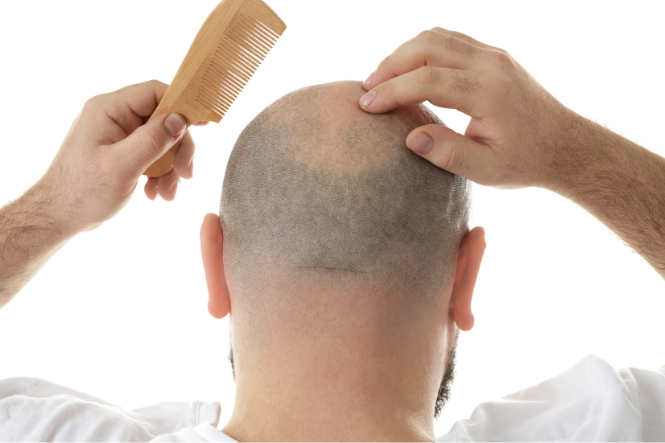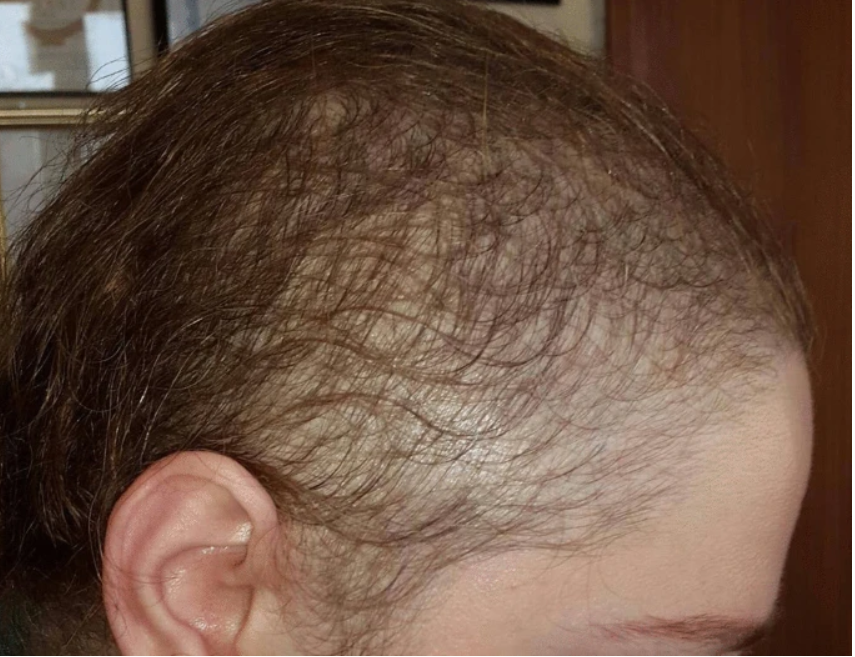Which vitamin deficiency causes hair loss? vitamin deficiency, hair loss, Vitamin D, Vitamin B12, Biotin, Iron, Zinc, balanced diet, hair growth, anemia, alopecia areata
Table of Contents

Introduction
Hair loss affects many people worldwide, and one common cause is vitamin deficiency. In this article, we will explore the link between specific vitamin deficiencies and hair loss, and discuss how to maintain a balanced diet to support healthy hair growth.
Vitamin D and Hair Loss
Vitamin D plays a vital role in hair follicle health and function. Low levels of this vitamin can lead to hair loss, as it helps maintain the hair growth cycle. Research suggests that Vitamin D deficiency can contribute to alopecia areata, an autoimmune disorder that causes hair loss. To ensure adequate Vitamin D levels, include foods such as fatty fish, egg yolks, and fortified dairy products in your diet, or consider taking supplements as recommended by a healthcare professional.
Vitamin B12 and Hair Loss
Vitamin B12 supports the production of healthy red blood cells, which transport oxygen and nutrients to the scalp. A deficiency in this vitamin can lead to anemia and hair loss. Vegans and vegetarians are particularly susceptible to B12 deficiency, as the vitamin is primarily found in animal products. To maintain healthy B12 levels, consume foods like fortified cereals, nutritional yeast, or B12 supplements, as recommended by a healthcare professional.
Biotin (Vitamin H) and Hair Loss
Biotin, also known as Vitamin H, plays an essential role in the production of keratin, a crucial protein in hair structure. Biotin deficiency can cause hair loss and hair thinning. Although biotin deficiency is rare, it can occur due to poor diet, certain medications, or genetic disorders. Foods rich in biotin include eggs, nuts, seeds, and whole grains. Biotin supplements are also available, but consult a healthcare professional before starting any supplementation.
Iron and Hair Loss
Iron is crucial for red blood cell production and oxygen transport to the scalp. Iron deficiency, which can lead to anemia, is a common cause of hair loss. Women, particularly those with heavy menstrual cycles, are more prone to iron deficiency. To prevent iron deficiency, consume iron-rich foods like red meat, poultry, fish, legumes, and leafy green vegetables. If you suspect an iron deficiency, consult a healthcare professional for proper diagnosis and supplementation recommendations.
Zinc and Hair Loss
Zinc is essential for hair growth and repair, and a deficiency in this mineral can lead to hair shedding. Zinc deficiency can result from inadequate dietary intake or poor absorption. To maintain healthy zinc levels, consume zinc-rich foods like oysters, red meat, poultry, beans, and nuts. If necessary, zinc supplements may be taken under the guidance of a healthcare professional.
Conclusion
Vitamin deficiencies can play a significant role in hair loss. Maintaining a well-balanced diet that includes essential vitamins and minerals can help promote healthy hair growth and minimize hair loss. If you suspect a vitamin deficiency or are experiencing hair loss, consult a healthcare professional for proper diagnosis and treatment recommendations.
Frequently asked questions
How to stop hair fall immediately?
There’s no immediate solution to stop hair fall completely, but you can try some general tips to help minimize it:
Maintain a balanced diet rich in vitamins and minerals.
Avoid tight hairstyles or excessive heat styling.
Be gentle when brushing or washing your hair.
Manage stress through exercise, meditation, or other relaxation techniques.
Consult a healthcare professional to rule out any underlying health issues.
Can hair loss be a sign of something serious?
Hair loss can sometimes be a sign of an underlying health issue, such as hormonal imbalances, autoimmune disorders, or nutritional deficiencies. It’s important to consult a healthcare professional if you’re concerned about your hair loss.
Illnesses that cause hair loss?
Some illnesses that can cause hair loss include:
Alopecia areata (an autoimmune disorder)
Thyroid disorders
Scalp infections (e.g., ringworm)
Polycystic ovary syndrome (PCOS)
Anemia
My hair is falling out from the root, what can I do?
Consult a healthcare professional to determine the cause of your hair loss. They may suggest treatments or lifestyle changes to help address the issue.
Sudden hair fall reasons in males?
Some reasons for sudden hair loss in males include:
Telogen effluvium (a temporary hair loss condition often triggered by stress or trauma)
Androgenetic alopecia (male pattern baldness)
Medications or medical treatments
Nutritional deficiencies
Hormonal imbalances
Infections that cause hair loss?
Some infections that can cause hair loss include:
Tinea capitis (ringworm of the scalp)
Folliculitis (inflammation of hair follicles)
Secondary syphilis
What causes sudden hair loss in females?
Sudden hair loss in females can be caused by various factors, such as:
Telogen effluvium (triggered by stress, illness, or hormonal changes)
Androgenetic alopecia (female pattern hair loss)
Alopecia areata
Hormonal imbalances (e.g., thyroid disorders, PCOS)
Nutritional deficiencies
Warning: The information provided in this article is for general educational purposes only and should not be considered as medical advice or a substitute for professional healthcare consultation. Always consult a licensed healthcare professional for personalized advice, accurate diagnosis, and appropriate treatment options related to your specific condition or concerns.
Read more: Which vitamin deficiency causes hair loss?



